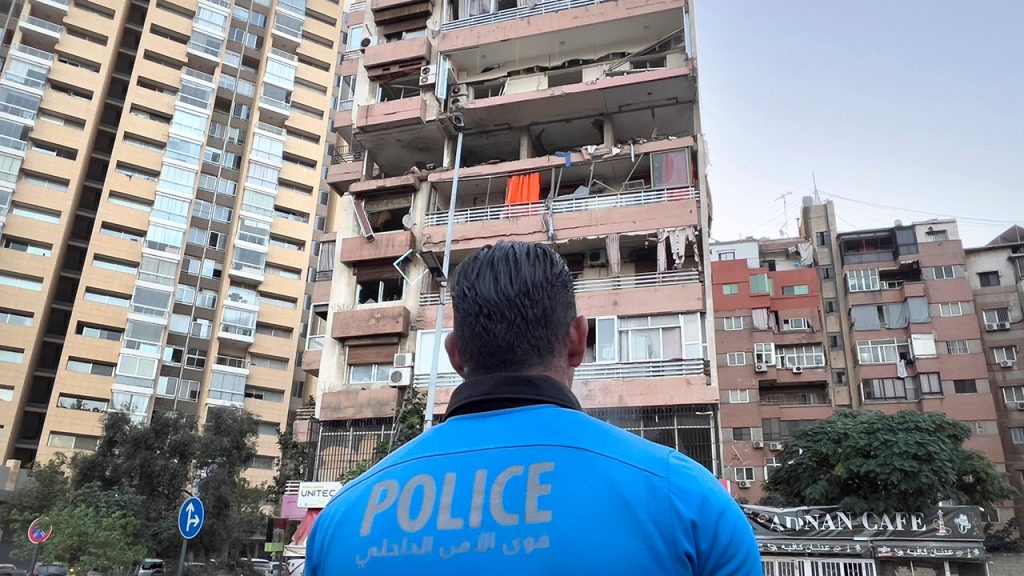A Hamas commander, Fateh Sherif, who worked alongside Hezbollah and led the terrorist group’s activities in Lebanon, was killed in an airstrike by Israeli officials. Sherif was responsible for coordinating Hamas’ terror activities in Lebanon with Hezbollah operatives and was in charge of recruiting operatives and acquiring weapons for Hamas. He also led the Hamas terrorist organization’s efforts to build up forces in Lebanon and advance their interests both politically and militarily. Additionally, Sherif was an accredited UNRWA member and the head of the UNRWA Teachers Union in Lebanon, raising concerns about members of the United Nations Relief and Works Agency participating in Hamas’ attacks on Israel.
The airstrike targeting Sherif took place in the southern Lebanese city of Tyre, according to reports from Reuters citing Hamas. In a separate incident, three leaders of the Popular Front for the Liberation of Palestine were also killed in an airstrike that hit an apartment building in Beirut. Israeli officials emphasized their commitment to continuing to operate against anyone who poses a threat to the civilians of Israel, signaling a dedicated effort to eliminate terrorist threats. These strikes come in the wake of an IDF operation that killed Nabil Qaouk, the deputy head of Hezbollah’s Central Council, and Hezbollah leader Hassan Nasrallah.
Following the deaths of key Hezbollah figures, the deputy leader of the terrorist group, Naim Qassem, announced that Hezbollah is prepared to defend against any potential Israeli ground operations in Lebanon. Qassem emphasized that Hezbollah is ready for a ground engagement if necessary and will face any possibility that may arise from Israeli actions. The escalating tensions between Israel and Hezbollah highlight the volatile situation in the region and the potential for further conflict. The Israeli military’s targeted strikes against prominent Hezbollah and Hamas leaders demonstrate their commitment to combating terrorist threats in the region.
The recent developments in Lebanon with the killings of Hamas and Hezbollah leaders have raised concerns about potential escalation and retaliation in the region. Iranian Ayatollah Ali Khamenei reportedly increased his security measures following the death of a Hezbollah leader, indicating the broader implications of these targeted strikes on regional alliances and conflicts. The ongoing conflict between Israel and various terrorist groups in Lebanon underscores the complex and volatile nature of the Middle East region. The readiness of Hezbollah to respond to Israeli ground operations highlights the potential for further violence and instability in the area.
Overall, the recent airstrike that killed Fateh Sherif, a key Hamas commander operating in Lebanon, along with strikes targeting leaders of Hezbollah, have heightened tensions in the region and raised concerns about potential retaliation and further conflict. The Israeli military’s determination to combat terrorist threats in the region is evident through their targeted strikes against prominent Hamas and Hezbollah leaders. The readiness of Hezbollah to defend against potential Israeli ground operations signals the potential for further violence and instability in the Middle East. The situation remains fluid, with the risk of escalation and retaliation looming.













